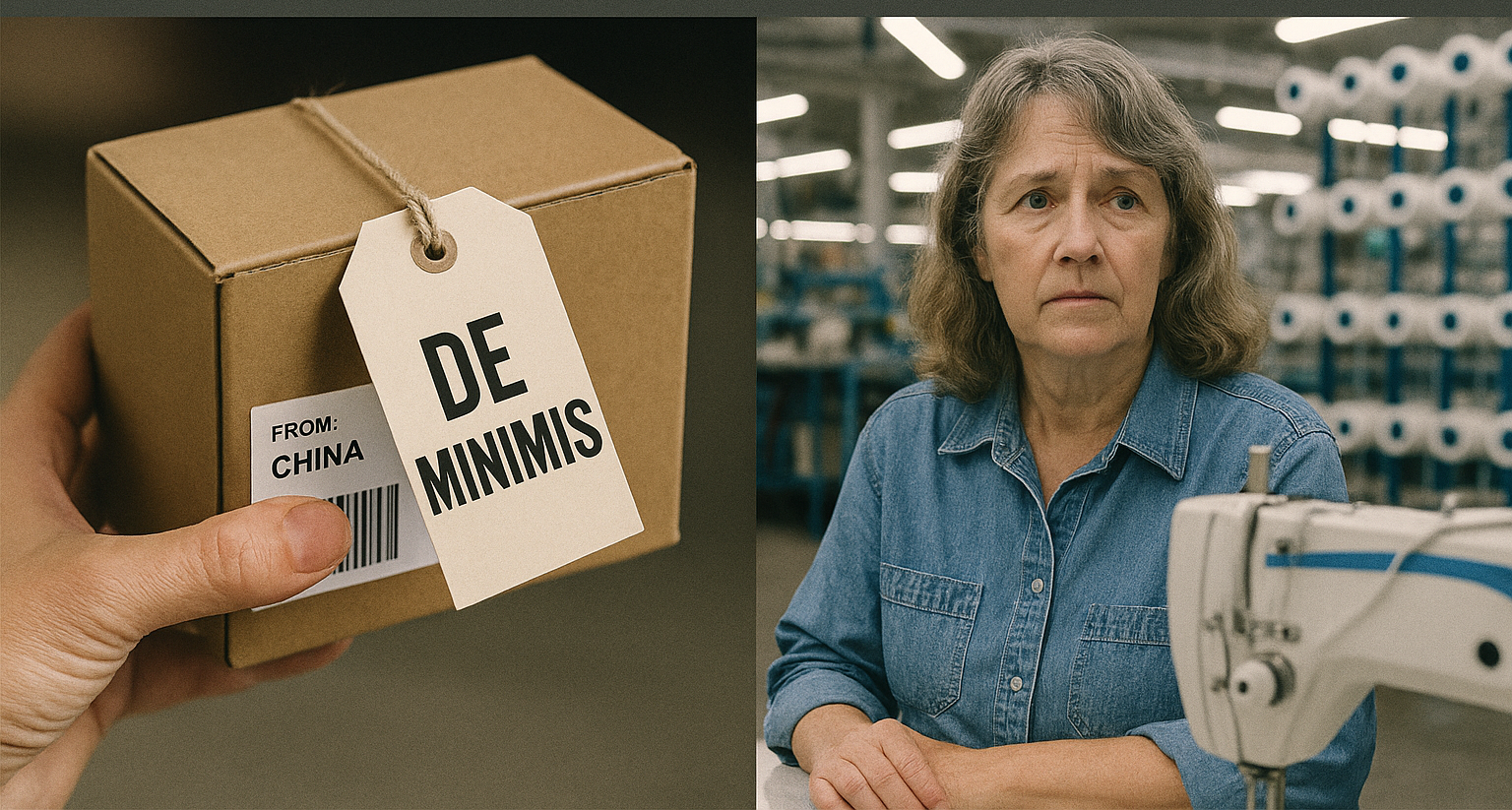The United States textile industry is ramping up its calls for the closure of the de minimis loophole for all countries, not just China and Hong Kong. In a strongly worded joint statement, the National Council of Textile Organizations (NCTO) and the American Apparel and Footwear Association (AAFA) emphasized the urgent need for broad policy reform, warning that the current loophole undermines domestic manufacturing and enables unfair trade practices.
The de minimis provision in U.S. customs law allows imports valued under $800 to enter the country without paying duties or undergoing rigorous inspection. While originally intended to streamline customs for consumers and small businesses, industry leaders argue that international sellers and major e-commerce platforms have exploited the rule to flood the U.S. market with cheap, under-declared goods, often without regard for safety standards or origin transparency.
“This is not just a China problem—it’s a global issue,” said Kim Glas, President and CEO of NCTO. “Every country that leverages de minimis to ship low-value, unregulated products into our market is harming American workers and manufacturers. We need uniform enforcement that treats all countries equally and protects the integrity of U.S. trade laws.”
Recent moves by the U.S. government to exclude China and Hong Kong from de minimis privileges were applauded by domestic manufacturers. However, the exclusion stops short of addressing goods from other major exporters, such as Vietnam, Bangladesh, and Mexico, that continue to benefit from this loophole.
Textile and apparel manufacturers argue that the loophole contributes to a two-tier trade system, putting U.S.-based firms at a disadvantage while eroding tax revenue and consumer protections. Some companies also report increased difficulties competing on price and speed with overseas sellers who avoid standard customs compliance and tariffs.
Retailers and consumer advocates remain divided. While some e-commerce companies argue that de minimis benefits small businesses and consumers through faster delivery and lower costs, others acknowledge the growing misuse of the rule and its potential to undermine long-term competitiveness.
The industry is urging Congress to pass bipartisan legislation that would lower the de minimis threshold or impose additional verification requirements. Proposals on the table include country-specific restrictions, import volume caps, and mandatory origin declarations for all parcels entering under the $800 exemption.
In a joint letter to lawmakers, over 300 U.S. manufacturers and supply chain companies expressed concern that failure to act could jeopardize thousands of American jobs and compromise product safety. They highlighted examples of substandard textiles and counterfeit goods slipping through customs under the current regime.
The Biden administration has signaled openness to revisiting de minimis policies. U.S. Trade Representative Katherine Tai noted in recent remarks that supply chain fairness and enforcement of trade rules are top priorities for the administration. However, concrete action on comprehensive de minimis reform has yet to materialize.
As global trade flows become more digitized and decentralized, the textile industry’s call for de minimis reform represents a broader reckoning over how trade policy must evolve to reflect digital commerce realities, national competitiveness, and consumer responsibility.
